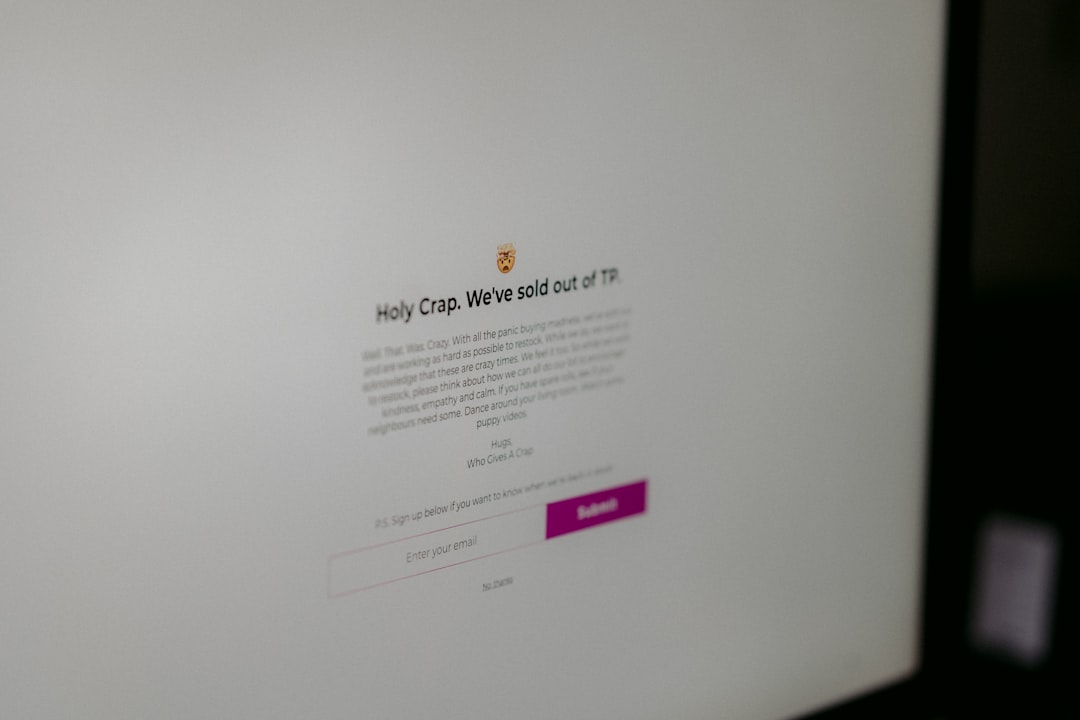When WooCommerce Multisite Sync Broke Product URLs and the Permalink Rebuild Plan That Fixed It Without 404s
WooCommerce is powerful. It lets you run multiple online shops, all from a single WordPress setup using Multisite. It’s like running a whole mall of stores with one login. But when we tried syncing products across a WooCommerce Multisite, things didn’t go according to plan. Product URLs broke, permalinks got tangled, and 404 errors popped up like moles in a whack-a-mole game.
TL;DR: Our WooCommerce Multisite product sync unexpectedly broke links on all our stores. Customers were landing on 404 pages instead of product listings. We solved it with a custom permalink rebuild plan that restored link structures without harming SEO. The fix worked like magic—no more 404s and happy shoppers once again!
The WooCommerce Multisite Dream Turns Into a Link Nightmare
Table of Contents
It all started with a simple goal: let’s build one main store and sync all products to ten satellite stores using WooCommerce Multisite. Sounds neat, right?
We installed a syncing plugin that promised exactly that. Products would appear across all stores, thanks to shared data. Everything worked great at first… except the URLs. Each store had its own URL structure, and when the plugin synced products, it forgot to update the permalinks correctly.
The result?
- Product pages showed up in the admin dashboard, but not on the front end.
- Clicking on products often returned… 404 Not Found.
- Some products had slugs attached to the wrong parent pages.
- Search engines? Very confused.
It was like opening a store at the mall, then printing flyers with the wrong directions. Nobody could find the front door.

Finding the Root Problem (Spoiler: It Was Permalinks)
After some head-scratching and plenty of coffee, we zeroed in on the issue. WooCommerce generates product URLs based on their slugs and the permalink settings in WordPress. But in a Multisite with synced products, those settings don’t always update automatically on each site.
Also, WooCommerce has a feature called “Product base” in the permalink settings. This defines how product URLs are structured (e.g. /shop/product-name vs. /products/product-name). On each site, these settings were different. Our sync tool didn’t respect that.
Here’s what went wrong:
- Synced products were copied without adapting to each site’s unique permalink setup.
- Permalinks on the target sites didn’t regenerate after a product was added.
- Some pages tried to load products using nonexistent slugs.
The customers saw 404s. The dev team saw chaos. We knew we needed a plan—fast!
The Rebuild Plan: Clean URLs Without Dropping Traffic
We didn’t want to just delete and re-add everything (again). That might fix permalinks, but it would also break inbound SEO links, bookmarks, and madness. Instead, we made a rebuild plan that preserved the existing structure as much as possible.
Here was our three-part fix:
- Scan every product on every subsite to check if its permalink matches the site’s settings.
- Programmatically rebuild the permalinks for products that were out of sync.
- Flush rewrite rules on each site carefully, so URLs got refreshed without restarting everything.
We wrote a custom script using WP CLI (a command-line tool for WordPress). It looked something like this:
wp site list --field=url | while read site; do
wp --url=$site wc product list --field=id | while read id; do
wp --url=$site post update $id --post_name=$(wp --url=$site post get $id --field=post_title | sanitize-title)
done
wp --url=$site rewrite flush
done
This script updated product slugs using each product’s title (a safe fallback), then flushed the permalinks. We added checks to make sure existing slugs weren’t SEO-sensitive before modifying. The products got “back in place”—no new 404s.

The Fun Part: Catching the Edge Cases
Here’s the thing—some products looked broken when they weren’t. Their permalinks technically worked, but they were misleading customers. For example, a T-shirt sold on store-a.com had this slug: store-b-tshirt. Not great.
We added some logic:
- If a product contained another store’s name in the slug, flag it.
- Auto-sanitize slugs using just the product title.
- Back up old slugs in case we needed redirects later (spoiler: we didn’t).
We even got creative by generating a “permalink preview” before applying changes, so we could visually approve if the rebuild made sense. Safety first!
Testing, Testing, 1-2-3
Before rolling this out to all subsites, we cloned two of them and tested everything:
- Manually broke a few known-good URLs to see if the rebuild would detect and fix them.
- Verified no loss of SEO meta data or page content.
- Re-checked WooCommerce breadcrumbs and sitemaps for accuracy.
Then we waited 48 hours for Google Search Console to confirm that 404s went away. They did!
Bonus: We Made It Future-Proof
To ensure we don’t face the same disaster again, we baked our slug repair logic into the sync process:
- You sync a product?
- The site checks permalink settings against the default.
- If they mismatch, it rebuilds the slug before the product goes live.
If needed, it also flags the item in a dashboard report. That way, the marketing team knows that “store-b-tshirt” isn’t sneaking into “store-a.com”.
What We Learned (So You Don’t Have To)
This experience reminded us that syncing content across sites isn’t just about copying and pasting. URLs matter—a lot. Especially when customers are trying to find your most popular products from search engines or email links.
Here are our key takeaways:
- Always double-check permalink base settings on each Multisite store before syncing products.
- Programmatically flush permalinks after changes using WP CLI or a reliable automation script.
- Keep permalink structures consistent—or intentionally different—based on your SEO strategy.
- Backup slugs and logs in case you need to troubleshoot or restore later.
Wrap Up: Sync Smarter, Not Just Faster
WooCommerce and WordPress Multisite can do amazing things together. But like any powerful combo, it needs careful setup. Syncing products is powerful—but without matching permalink logic, you invite chaos. Take the time to build smart recovery tools like we did, and you won’t just survive a URL disaster…
…you’ll prevent the next one entirely.
Happy syncing, and may your 404 pages see less traffic than your cart!







